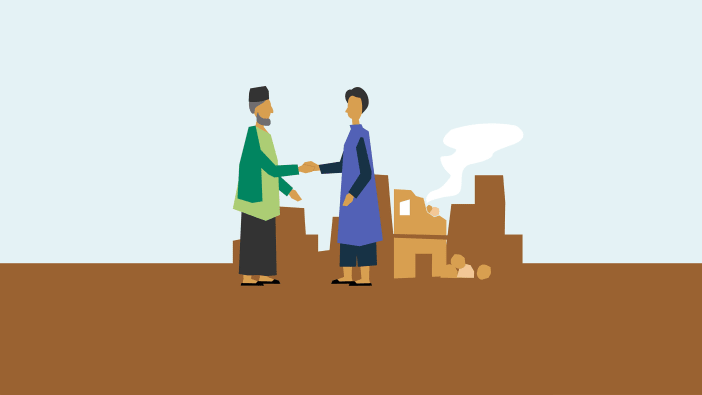Our approach
Conflict has been described as development in reverse. If we are to progress in our call to end extreme poverty, violent conflict must be addressed. Tearfund’s peacebuilding work is therefore a vital element of our efforts to build reconciled, peace-filled societies.
Our vision is to address the impact and the systemic causes of violence to bring sustainable peace for ourselves, our neighbours, and the world.
We do this by equipping churches, individuals and communities with the skills and confidence to address tensions within their communities constructively and inclusively, breaking the cycle of violence as they realise the church’s ministry of reconciliation.
We look to build relationships across divides, restoring trust and countering attempts to blame or demonise those that may be different. We pair this with practical development and humanitarian work as part of integrated programmes that address the underlying drivers of violent conflict and support existing drivers of peace and justice such that people are able to live in peace with dignity.
In doing this we look to empower women and young people, ensuring that their voice and contribution are maximised. We also look to connect peacebuilders with each other and with decision-makers and influencers such that changes at the community level can transform underlying policies and practices to bring structural change in favour of an inclusive and just peace.
Discover Tearfund’s resources for conflict-sensitive programming



